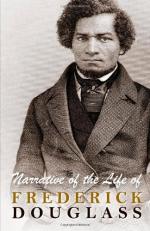|
This section contains 3,617 words (approx. 10 pages at 400 words per page) |

|
In the following essay, Sekora examines the history of the slave narrative and Douglass' efforts to transcend its trappings.
In the struggles of Frederick Douglass lies the intellectual history of nineteenth-century America. Douglass directly influenced much of that history and touched virtually every issue of consequence in black-white relations. Once he mounted an anti-slavery platform in the summer of 1841, neither abolition nor Afro-American writing were ever the same again. He was so prescient, his successes so many, the strength of his writing and speaking so great, we are inclined to pass quickly over many of his conflicts, confident that history has upheld the positions he took. In the best-known example of the pre-war period, later historians have indeed credited him with exposing the intellectual compromises and sheer blindness of the Garrisonian wing of the abolition movement. Yet not all features of even that quarrel have been explored...
|
This section contains 3,617 words (approx. 10 pages at 400 words per page) |

|




